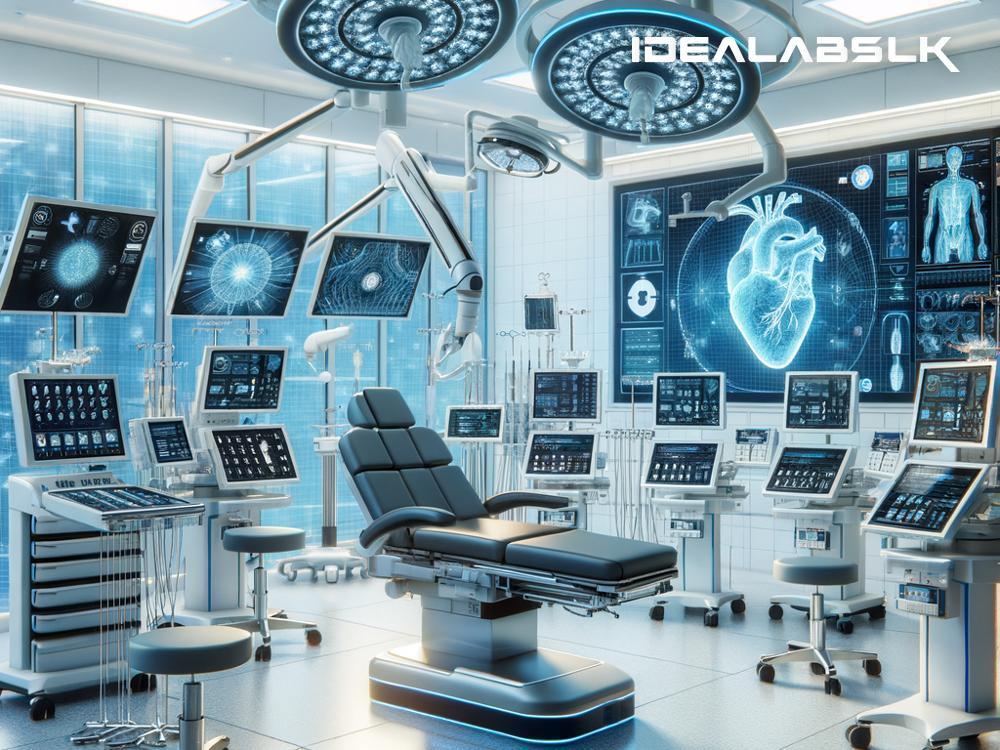The world of healthcare is changing fast, powered by groundbreaking tech innovations that seem to be pulled straight from science fiction. As we look towards 2025, the future of medicine promises even more astonishing advancements that could make staying healthy easier, treatments more effective, and healthcare more accessible to everyone. Let's explore some of the incredible innovations that are shaping the future of healthcare.
Telemedicine: Doctor Visits from Your Couch
One of the most significant changes we've seen, accelerated by the pandemic, is the rise of telemedicine. Imagine having a doctor's visit without leaving your home. No more waiting rooms or traveling long distances. By 2025, it's expected that seeing your doctor via a video call could become the norm for non-emergency situations. This convenience could greatly improve healthcare accessibility, especially for those in rural areas or with mobility issues.
Wearable Health Monitors: Your Health, On Your Wrist
Wearable technology like fitness trackers and smartwatches have been around for a while, monitoring our steps and heart rates. But by 2025, these gadgets could become even more advanced, capable of detecting a wider range of health indicators such as blood sugar levels, hydration, and even early signs of diseases. This could mean a big leap towards preventive medicine, helping us to address health issues before they become serious.
Personalized Medicine: Tailored to You
Have you ever wondered why some medications work wonders for some people but not for others? The future of healthcare is moving towards personalized medicine, using information about a person’s genetics, environment, and lifestyle to customize their care. By 2025, we could see this approach becoming more mainstream, leading to more effective treatments with fewer side effects, especially in areas like cancer treatment and chronic disease management.
Artificial Intelligence: Smarter Healthcare
Artificial Intelligence (AI) is set to revolutionize healthcare by making it more efficient and precise. AI algorithms can analyze vast amounts of data quickly, identifying patterns that humans might not notice. By 2025, we could see AI being used for everything from diagnosing diseases more accurately, developing new medicines, predicting patient outcomes, and even providing personalized health recommendations. AI could become a co-pilot in healthcare, assisting doctors rather than replacing them.
3D Printing: On-Demand Medical Supplies
3D printing has been making waves in various industries, and healthcare is no exception. This technology has the potential to supply on-demand medical equipment, prosthetics, and even drugs tailored to the specific needs of patients. By 2025, 3D printing could reduce the cost and waiting time for prosthetics and implants, making them more accessible to patients worldwide.
Virtual Reality: A New Dimension in Treatment and Training
Virtual Reality (VR) is not just for gaming. In healthcare, VR technology is starting to be used for treating chronic pain, phobias, and post-traumatic stress disorder (PTSD) by providing immersive therapeutic experiences. It's also a powerful tool for medical education, allowing students and professionals to practice procedures in a safe, controlled, virtual environment. By 2025, VR could become a common method for both treatment and medical training.
Robotics: Precision and Assistance
Robotics in healthcare is moving beyond manufacturing and into direct patient care. Surgical robots, already in use, offer precision that can surpass human capabilities. Beyond surgery, by 2025, we might see robots assisting in patient care, helping with rehabilitation, and even providing companionship to those in need. These robots could help address the global shortage of healthcare workers, providing support where human resources are scarce.
The Internet of Medical Things (IoMT)
Imagine a world where your medical devices, wearables, and even your home can communicate to keep you healthy. That's the promise of the Internet of Medical Things (IoMT). By connecting health monitors, implants, and other gadgets to the internet, healthcare providers can get real-time data on their patients' health, leading to quicker, more proactive care. By 2025, IoMT could make remote monitoring and health management a seamless part of everyday life.
Final Thoughts
The future of healthcare, shaped by technology, promises to make medicine more personal, efficient, and accessible. Innovations like telemedicine, AI, wearable devices, and personalized treatments are paving the path to a healthier future for everyone. By 2025, these advancements could transform not just how we receive healthcare but how we think about health itself. As we embrace these changes, it's exciting to think about the possibilities of living in a world where healthcare is truly at our fingertips.

